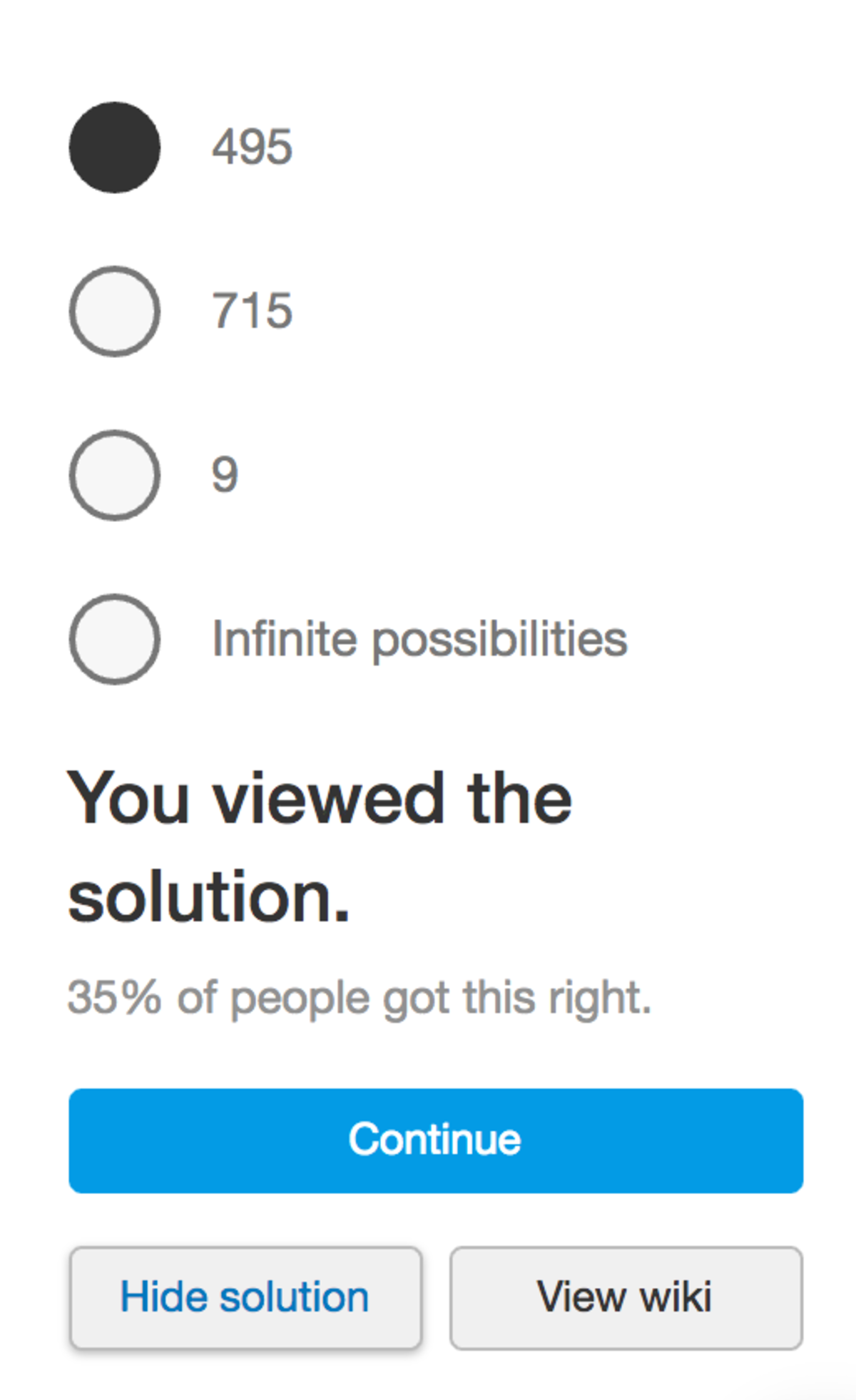Quartic Polynomials
How many quartic polynomials P ( x ) are there such that the coefficients are nonnegative integers and P ( 1 ) = 9 ?
This section requires Javascript.
You are seeing this because something didn't load right. We suggest you, (a) try
refreshing the page, (b) enabling javascript if it is disabled on your browser and,
finally, (c)
loading the
non-javascript version of this page
. We're sorry about the hassle.
1 solution
Thanks. I have updated the answer to 495.
In future, if you spot any errors with a problem, you can “report” it by selecting "report problem" in the “dot dot dot” menu in the lower right corner. This will notify the problem creator who can fix the issues.

Log in to reply
This problem is more than a year old and we didn't have the 'report' - feature back then.
Log in to reply
I know. The comment is more for other members who are looking in on the solution discussions, and encouraging them to use the report feature.
Thank you for changing it! Should've reported it but I haven't been on Brilliant for a while
a+b+c+d+e=9 can we say a can take 1 to 8 values and rest four places should be filled by 4 numbers like In permutation...... if I'm doing this answer is coming as 512
a is not zero.so a can be 1,2,3.....8 and b,c,d,e should have cases like b=0 b=1 .....but here order of b,c,d,e matters as they are coefficients.so number of ways possible will be (4p1+4p2+4p3+4p4) where p is permutation.like this there are 8 cases.so 8*(4p1....) is it correct???
Log in to reply
Let's say that a = 6 . How many solutions are there to b + c + d + e = 3 ? You seem to claim that there are (4p1+4p2+4p3+4p4) = 52 solutions.
Sorry I got my mistake
Can u please say how you got 715?
Log in to reply
Check out stars and bars .
In general, if the problem also has a "View wiki" button, clicking on it would provide you with more information on how to solve similar problems.

I totally forgot about that, thank you so much for pointing it out :D
Steven, that is a nice question! But the answer is not 7 1 5 . It's 4 9 5 . Why?
A quartic polynomial is a polynomial of the form a x 4 + b x 3 + c x 2 + d x + e where a does not equal 0 . This is the very important condition you forgot.
I'm adding a short solution for this.
Let P ( x ) be equal to a x 4 + b x 3 + c x 2 + d x + e where a , b , c , d and e are non-negative integers and a = 0 .
We have P ( 1 ) = 9
So, a ⋅ 1 4 + b ⋅ 1 3 + c ⋅ 1 2 + d ⋅ 1 + e = 9
In other words a + b + c + d + e = 9
So, the problem is reduced to finding the number of ordered sets of non-negative integers that satisfies the above equation and where a = 0 .
The easiest way to do this forget about the restraint on a and find all ordered sets of non-negative integers where a + b + c + d + e = 9 and then subtract the cases we don't want to include [the sets where a = 0 ].
The first part can be calculated as ( 5 − 1 9 + 5 − 1 ) = 7 1 5 [the number you put as the answer].
And we don't want to include the cases where a = 0 . So we're going to subtract ( 4 − 1 9 + 4 − 1 ) = 2 2 0 cases from our total.
So the correct answer is 7 1 5 − 2 2 0 = 4 9 5 .